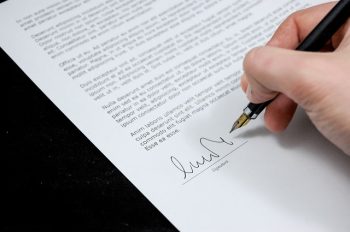Hoping to benefit from advantageous taxation and cheap labour, many entrepreneurs are considering setting up a business outside of France. This possibility is authorized by law with obligations and tax consequences which vary according to the type of activity and the legal form of the company (I created my first company at the beginning of 2016). The entrepreneur can opt for the creation of a company in the form of a branch, a subsidiary or a representative office to develop his activity there or even create his company abroad with a view to setting up his the head office.
A branch is a secondary establishment, a real business abroad, generally set up by a parent company with a view to carrying out its activities outside France. It has identical activities to the parent company, but with its own clientele. Indeed, a parent company creates a branch in order to facilitate the extension of its relations with its customers in a foreign territory. Not being independent from the parent company, the branch does not have legal personality.
In accordance with article 209-I of the General Tax Code (CGI) which stipulates that ”profits liable to corporation tax are only profits made in companies operating in France”, the profits of the branch established in a foreign country are taxed in the country of establishment. With this principle of territoriality, these profits are not subject to a second taxation which thus makes it possible to avoid double taxation.
In accordance with the law, parent companies can therefore exclude from their taxable results in France, profits made through their branches located abroad. Thus, a parent company can legally create its business abroad in the form of a branch, subject to the principle of territoriality in corporate tax.
To promote the development of the distribution of products or services outside French territory, an entrepreneur can decide to create, in complete legality, a subsidiary abroad. This legal and permanent structure is legally a company whose capital is held at more than 50% by the parent company which controls it.
The subsidiary has a separate legal and fiscal personality from the parent company. The income of the subsidiary is not taxed in France, but in the country of establishment, in accordance with the tax regime of the host country. It is therefore legal to create this company abroad in order to subject it to a tax system which, compared to that of France, is very advantageous.
A representative office or liaison office acts as a local intermediary for the parent company, enabling it to collect useful information for the parent company and to establish contacts with potential customers or suppliers. It does not carry out any commercial activity and does not make any sales.
It is therefore not subject to income tax in France. But he is liable for local social security contributions if he employs a resident. It does not have legal and fiscal personality. This office was therefore created with a view to prospecting or testing foreign markets.
The creation of a company abroad, through the transfer of the head office, is legal provided that you comply with the transfer rules in force in France, based on a set of legal acts, and the formalities of incorporation in the country. of implantation.
Thus, the entrepreneur who plans to carry out his activity abroad, can thus relocate the headquarters of his company abroad and put an end to the obligation for his company to submit to the provisions of French law. This transfer is therefore considered as a cessation of activity in France and results in immediate taxation or makes all taxes due payable.



